Director/co-writer Sam Mendes used stories his grandfather told about World War I, plus others? stories from the Imperial War Museum archives, for the foundation of 1917. It is the story of friendship, loyalty, determination, and courage. But it also touches at times on the futility that is inherent in war.
The film opens with Lance Corporals Blake (Dean-Charles Chapman) and Schofield (George MacKay) relaxing during what has become a lull in the fighting. Blake is summoned to report to the General and to bring someone with him. The two report and Blake is tasked with delivering a message. The Germans seem to have withdrawn. Another battalion, thinking the Germans are on the run is planning a dawn attack to try to finish them off. However, it?s a trap. If the attack happens it will cost the lives of 1600 men. Blake was chosen because his brother is in that group, and so Blake will have great motivation. The difficulty is that to get there they must navigate through No Man?s Land, and then a few miles through enemy territory that may or may not still have enemy soldiers waiting to kill them.
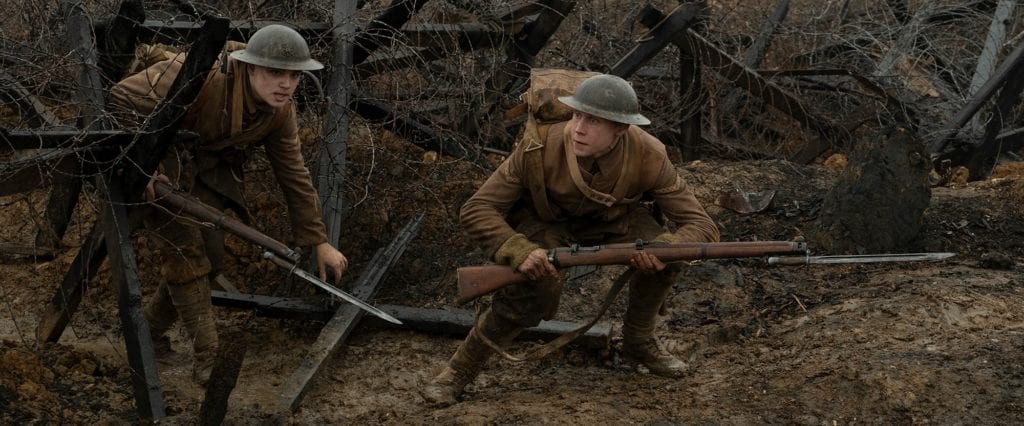
Mendes, working with lauded cinematographer Roger Deakins, strives to let us see the journey step by step. The film is seemingly one continuous tracking shot of the two soldiers and the landscapes they travel through. This is truly a technical challenge to accomplish, and it is worth noting that it is achieved. Personally, I find that a bit distracting because I start looking for the seams of where different takes have been blended to each other.
This method creates an atmosphere of constant tension. From the first steps into No Man?s Land they are targets. They must work their way through barbed wire, the various craters and rotting corpses (both equine and human), never knowing when something might happen. When they reach the enemy?s abandoned trench, there is still no safety. There could be other threats to deal with. There is little time to relax. Even in open country, any building could be dangerous.
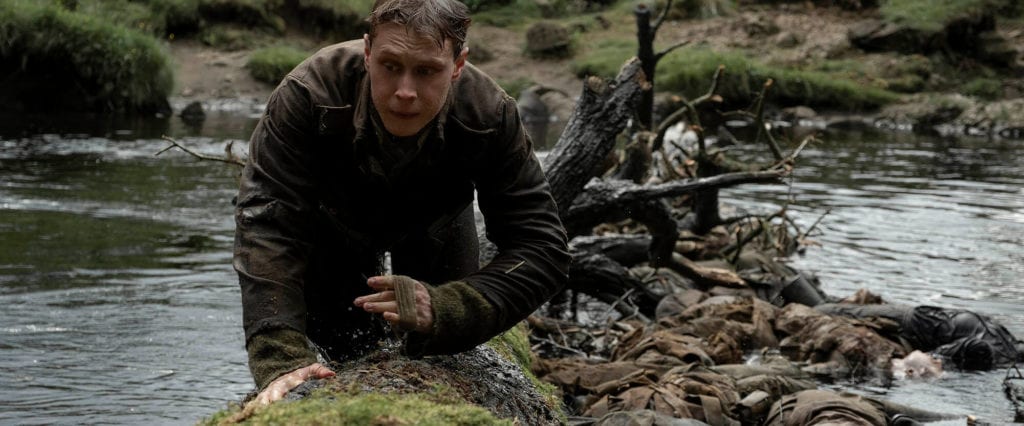
While there are other characters they encounter (the cast includes Benedict Cumberbatch, Colin Firth, and a number of others in what are essentially bit parts), this is really the story of Blake and Schofield and their mission. They are comrades, but not especially close. They have different outlooks on the mission. Blake, with the motivation of saving his brother, wants to start immediately; Schofield is more cautious. Schofield is a bit more experienced, having been awarded a medal from an earlier battle; Blake looks forward to doing something that will get a medal. Blake is open about talking about his family; Schofield is more compartmentalized, knowing he may never see his family again. Their relationship grows through this mission, but that is not the real focus. Instead, as we see these two soldiers risking their lives to complete the mission, we note the wartime virtues that they embody.
I have to admit that I?m nearly always conflicted about war movies. I view war as evil. Even a just war (if such a thing exists) is inherently evil, even if it must be entered into to stop greater evil. Yet, in the midst of that evil, we are able to find examples of people acting valiantly. This can often lead to an idealized and romanticized view of war and those who fight. That is a danger that 1917 flirts with at times. Yet, Mendes also includes bits and pieces that point to a more balanced understanding. For instance, when Blake asks Schofield why he doesn?t wear the medal he earned, Schofield tells him he traded it to a French soldier for a bottle of wine. He was thirsty. The practicalities of life sometimes are of more value than the trimmings of glory.
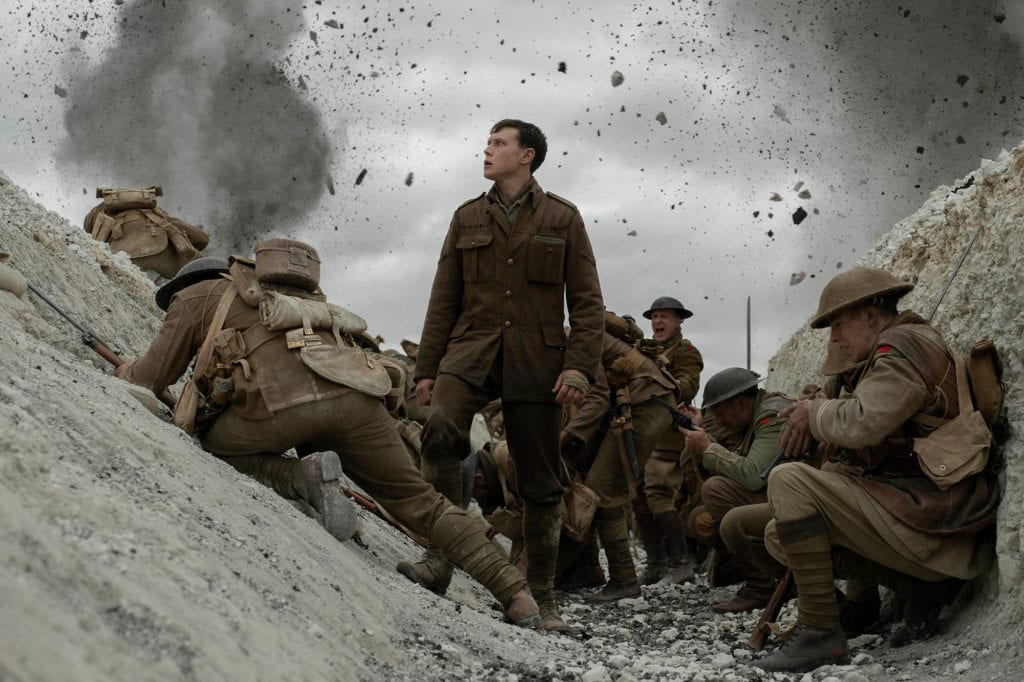
An interesting, seemingly throwaway line, struck me when I heard it. I think it gives some insight into how to understand the film. When the two are about to set off, they ask the general why they aren?t taking more men with them. He quotes a line from a Kipling poem: ?Down to Gehenna or up to the Throne,/He travels fastest who travels alone.? (How very British to answer in such a way!) But this journey is one that is indeed a walk through Hell. Perhaps it also is an ascent of the spirit as the soldiers find within themselves qualities they had not known they possess.
Photos courtesy of Universal Pictures

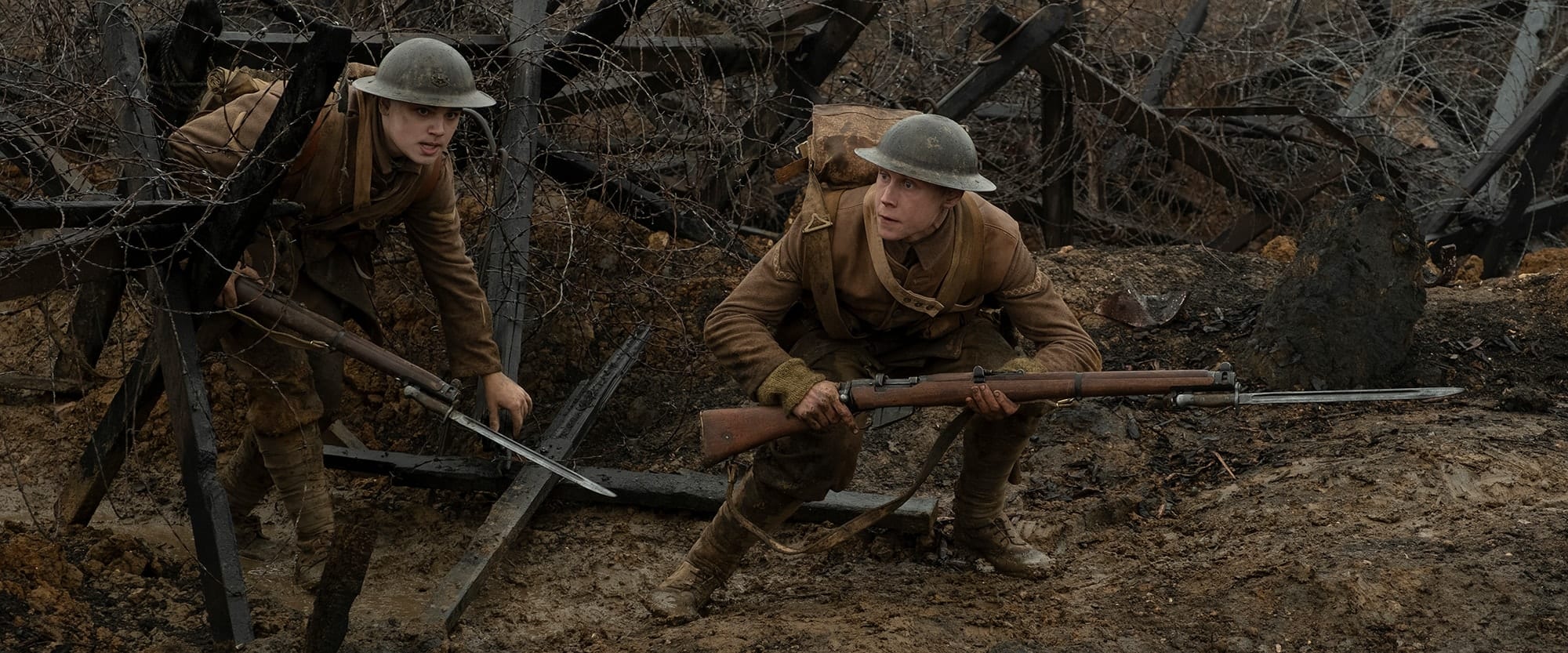

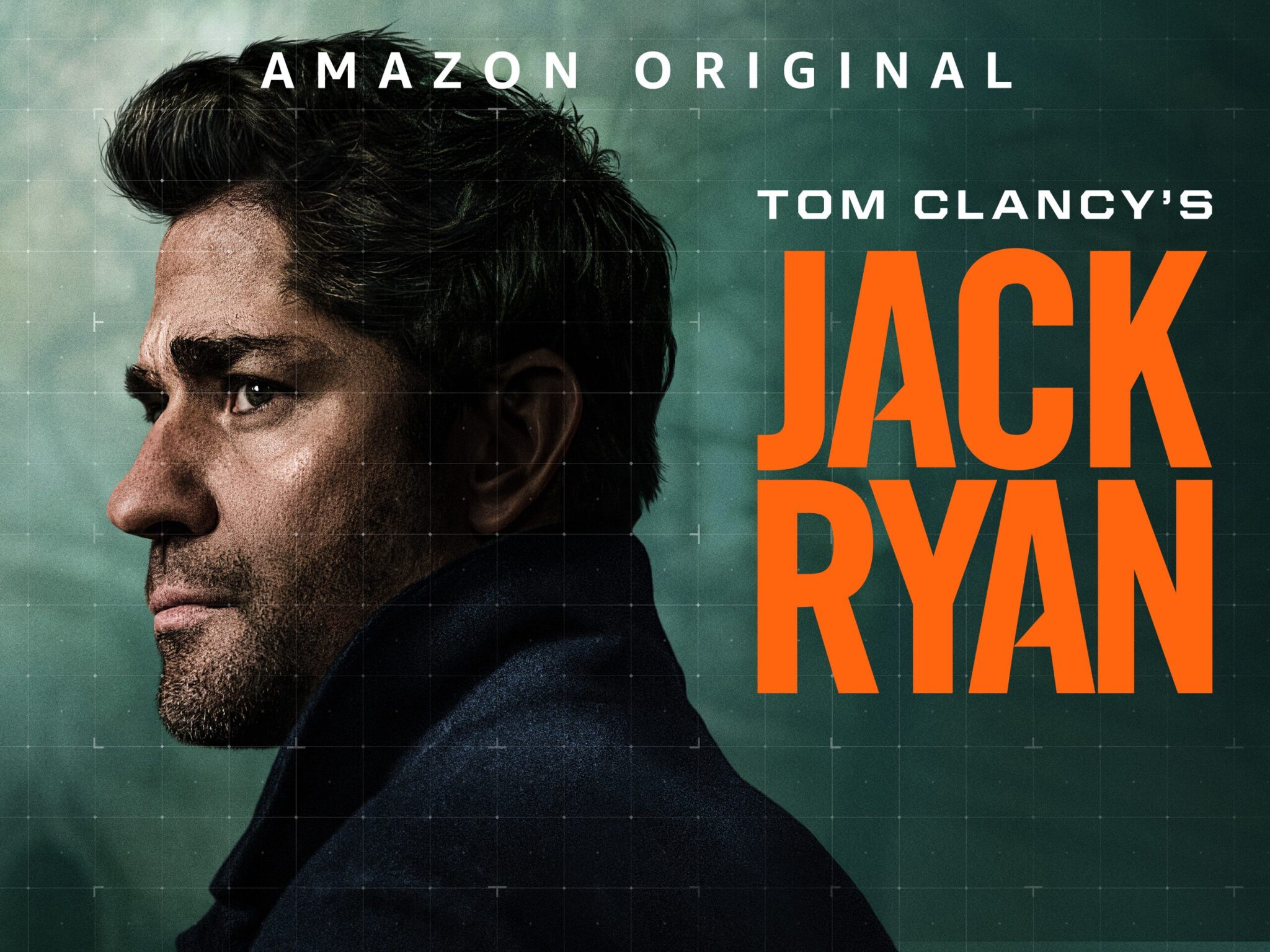

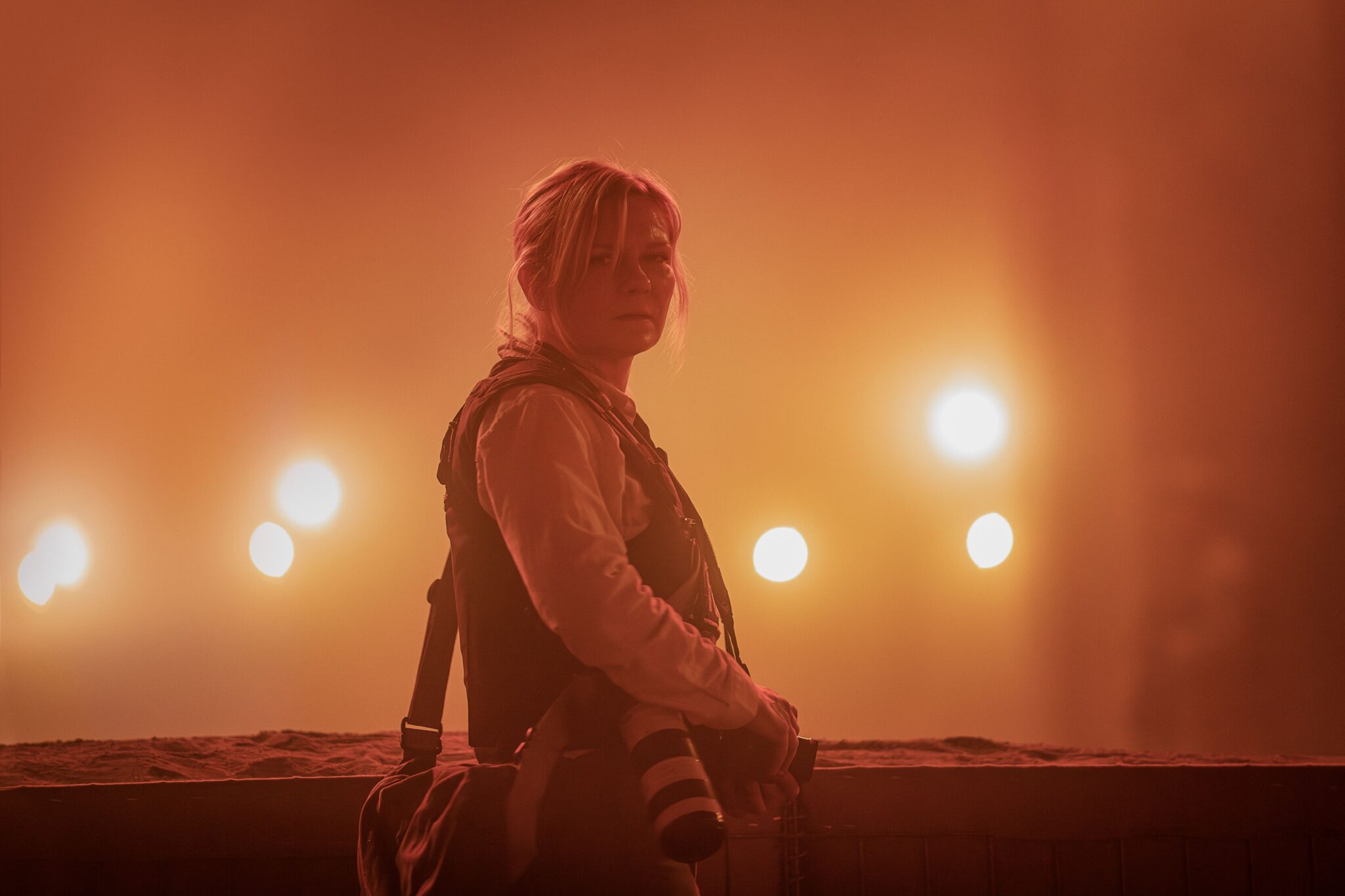
Opens in limited release on Christmas Day; general release Jan. 10.
The film is commentary to the whole poem.
Rudyard Kipling
The Winners
(“The Story of the Gadsbys”)
What the moral? Who rides may read.
When the night is thick and the tracks are blind
A friend at a pinch is a friend, indeed,
But a fool to wait for the laggard behind.
Down to Gehenna or up to the Throne,
He travels the fastest who travels alone.
White hands cling to the tightened rein,
Slipping the spur from the booted heel,
Tenderest voices cry ” Turn again!”
Red lips tarnish the scabbarded steel,
High hopes faint on a warm hearth-stone–
He travels the fastest who travels alone.
One may fall but he falls by himself–
Falls by himself with himself to blame.
One may attain and to him is pelf–
Loot of the city in Gold or Fame.
Plunder of earth shall be all his own
Who travels the fastest and travels alone.
Wherefore the more ye be helpen-.en and stayed,
Stayed by a friend in the hour of toil,
Sing the heretical song I have made–
His be the labour and yours be the spoil.
Win by his aid and the aid disown–
He travels the fastest who travels alone!